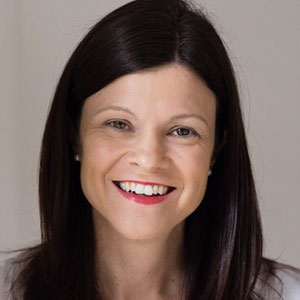
Kim Hellberg, 24 April, 2024
As the CEO of Health and Wellbeing Queensland, Dr Robyn Littlewood leads the state’s prevention agency to turn the tide on rates of obesity and chronic disease. A QUT nutrition and dietetics alumnus, Dr Littlewood shares her thoughts on the challenges we all face to not only be healthy and well in the current environment, but to thrive as individuals and communities.
I have the best job in the world. I lead the most impactful organisation, supported by genuine and authentic partnerships with people who want to leave a health legacy for future generations of Queenslanders. Five years in, we remain relentless and have the outcomes to prove it. We’ve taken a systems approach to change which means we have infiltrated every level of the health system, yielding cumulative effects and scalability throughout. Here’s what we've found.
The problem
Health doesn’t just happen through support from a single program, decision, or investment. That’s why our costly gym memberships, introduction of cauliflower rice into our diets, and buying expensive ‘health' shakes hasn't made us feel better. Health is a complex term that is influenced heavily by where we live, work, play, learn, and age.
I was formally trained as a dietitian at QUT and started working as a dietitian at the Royal Children’s Hospital more than 20 years ago, focusing mainly on providing dietary advice for sick patients in oncology, intensive care, and rehabilitation. Things were working. My patients started to recover, and it became clear that nutrition was key to their recovery and remained priority; I felt progress was happening.
At the same time, a different cohort of children began to present with adult diseases: obesity, type 2 diabetes, fatty liver, high cholesterol, chronic pain, and sleep apnea. With increasing cases, I had to apply principles learned in treating 40-year-old adults to our growing and learning children. The health of some populations was clearly deteriorating and the rates of illness were gaining momentum.
Fruit and vegetables are increasingly unaffordable for many households, sports club dues and uniforms are expensive, and access to bulk billing GP’s is diminishing with more families turning to takeaway due to time and money stress. These issues are not isolated to one suburb, one state, or even one country.
One of the main health challenges Health and Wellbeing Queensland is working to address is the growing rates of obesity in today’s generations. A study published by The Lancet this year reported that 1 in 8 people globally (1 billion people) are living with obesity. The study found that since 1990, obesity in adults has more than doubled, while it has quadrupled in children and adolescents aged 5-19 years.
Queensland has the second highest rate of obesity in Australia. However, we know that this is just one measurement of poor health. Across the world, people are eating fewer fruits and vegetables and more unhealthy foods; they are spending less time being physically active and more time sitting or being sedentary. Poor sleep hygiene worries me too.
For the first time in history, 1 in 2 adults live with a chronic disease with most living with more than one. By 2035, it is predicted there will be four to five chronic diseases per person.
Why?
Research commissioned by Health and Wellbeing Queensland shows if we continue to do what we’re doing now, children born this decade are expected to live shorter lives than their parents. We can turn this around by creating environments that support healthy habits.
How?
As a broad-reaching and cutting-edge professional group, we have the power to effect significant and meaningful change for the future health and wellbeing of our state.
A shift in health outcomes at this stage will require every single one of us to help Queensland children enjoy their right to grow up in a healthy environment.
What could this look like?
- Collaboratively influencing prices, physical access, availability and affordability to fresh food and vegies across the state, and rethinking our food systems to reflect this
- Empowering clinicians through a connected system of referrals to a range of programs
- Future-proofing our workforces’ own wellbeing
- Encouraging people to move as much as possible, whether in green spaces, sporting clubs, or through day-to-day activity
- Ensuring that every household from Southeast Queensland to the tip of Far North Queensland (FNQ) are food secure (currently, 1 in 3 households in some parts of FNQ don’t have enough food to last one day)
- Wrapping all of the above through collective opportunities such as the 2032 Olympic and Paralympic Games health legacy

Reflecting the principles of the Wellbeing Economy, we need to design our health and food systems to serve people and the planet. Health and Wellbeing Queensland has been set up to do just that.
If you want to be part of this change, please reach out – my inbox is always open.
Dr Robyn Littlewood
QUT degree - Graduate Diploma in Nutrition and Dietetics (1996)
Have a question for Robyn? Connect with her on LinkedIn.
